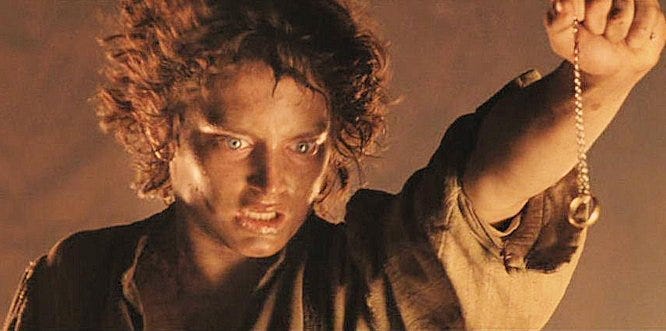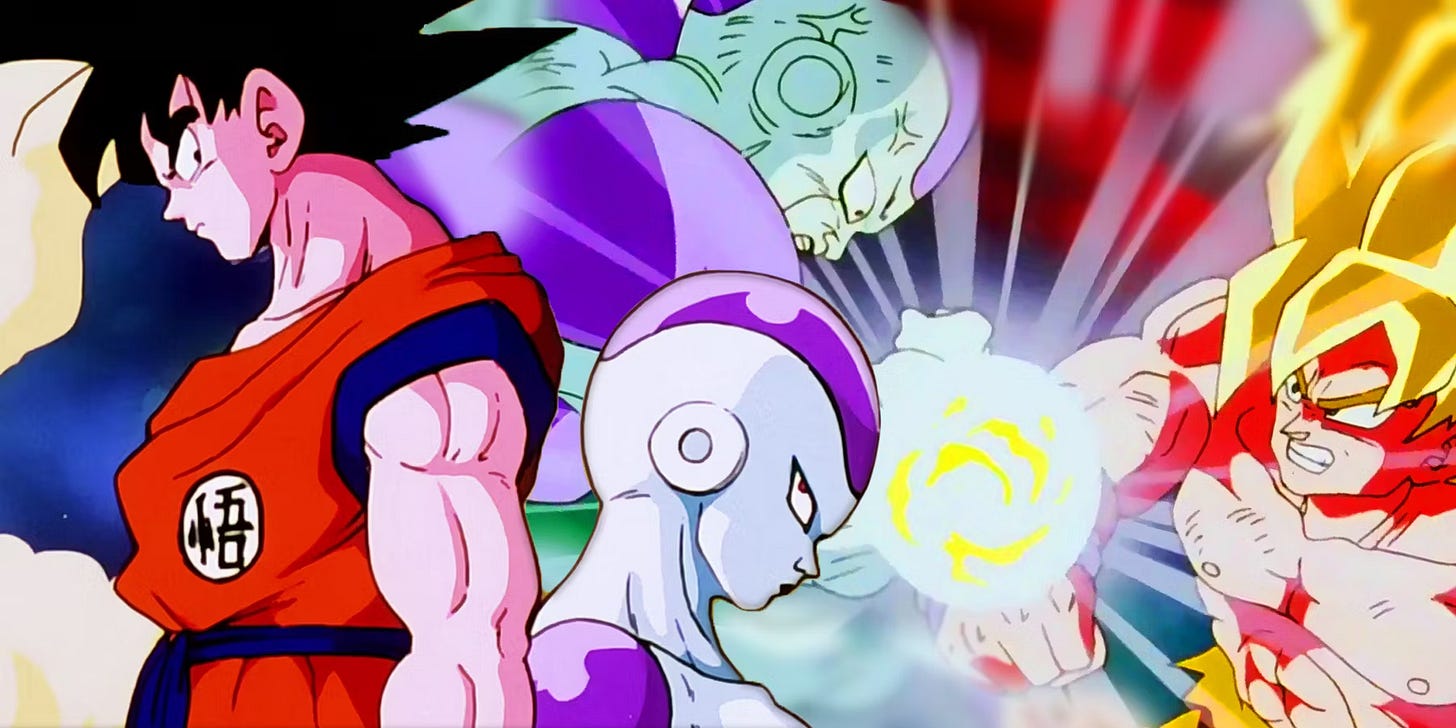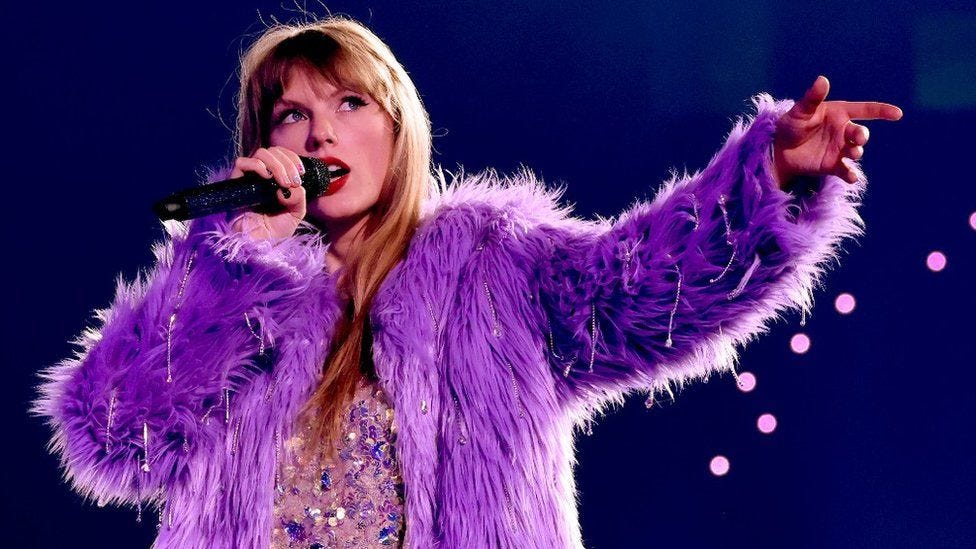Why Bad is stronger than Good?
The science behind why bad triumphs over good, and how we can flip the script.
📝 Words: 1,337 | 🕰️ Estimated Reading time: about 7 mins
Bad is stronger than good.
In movies, anime or books, evil often appears stronger than good, and seems to prevail until the hero faces unprecedented challenges that transform them into something stronger and better.
And only then can they defeat evil, and good can finally triumph.
The hero's journey - also known as the monomyth - is the common template of stories that involve a hero who goes on an adventure, is victorious in a decisive crisis, and comes home changed or transformed.
Think of Frodo in The Lord of The Rings, who - with his companions - face the incredible power of Sauron. Throughout the journey, they encounter numerous obstacles. And it is only through incredible perseverance that Frodo is able to destroy both the Ring and Sauron.
Or Goku in Dragon Ball, facing villains who are far stronger than he is initially. Despite being outmatched, he doesn't shy away from the challenge. Instead, he embraces the struggle, trains relentlessly, and ultimately defeats his opponents.
Or Harry Potter, facing Lord Voldemort, who seems invincible for much of the series. But thanks to the support of his friends, mentors, and his own courage, Harry grows stronger and finally defeats him.
So, unless you are Frodo, Goku or Harry Potter, bad is stronger than good.
Let’s take the music industry, for example.
I can easily think of five huge music hits with the word "bad" in the title.
I'm a bit “old school”, so I can immediately think of "Bad" by Michael Jackson, "You Give Love a Bad Name" by Bon Jovi or - deep in my teenage years - "Bad Day" by Daniel Powter (what a hit this one was!)1.
As of today, these three tracks have 1+ billion views combined on Youtube (only counting the views from the artists’ official Youtube channels).
More recently, I can think of "Bad Blood" by Taylor Swift & Kendrick Lamar (1.6 billion views), or "Bad Guy" by Billie Eilish (1.2 billion views).
This same exercise does not come naturally for songs with "good" in the title.
How so?
🔬 What science says
Studies show that bad emotions, bad feedback, and bad parenting have a stronger impact than good ones2.
Also, bad information and bad news is processed more thoroughly than good.
And bad impressions and stereotypes are quicker to form and more resistant to disconfirmation than good ones.
Learning something bad about a new acquaintance carries more weight than learning something good.
Remember the halo effect?
Moreover, Wells, Hobfoll, and Lavin3 found a snowballing effect of consecutive bad outcomes. Meaning that each bad outcome exacerbates the next, in a spiral of negative perception. Bad compounds.
Good outcomes did not produce similar results unfortunately.
As a general principle, across a broad range of psychological phenomena - and not only in movies, anime and books - bad things will produce larger, more consistent, or more lasting effects than good things.
Do the songwriters know about this?
The causes behind it
“Why?” you ask.
“Loss aversion”, science replies.
Due to loss aversion, we tend to feel the pain of a loss (i.e. bad event) more intensely than the pleasure of an equivalent (or even better) gain (i.e. good event). We are driven more strongly to avoid losses than to achieve gains.
This principle was first identified by psychologists Daniel Kahneman and Amos Tversky in the 1970s, and it has an evolutionary explanation:
Organisms that treat threats (losses) as more urgent than opportunities have a higher chance of survival.
Ignoring potential positive outcomes might lead to regret over missed opportunities, but no immediate harm usually follows. However, ignoring potential dangers even once can result in severe injury or death.
Cockroaches and cherries 🪳🍒
To explain how the bad outweighs the good, Paul Rozin - psychologist expert on "disgust" (yes, disgust) - used a brilliant metaphor:
“A single cockroach will completely ruin the appeal of a bowl of cherries, but one cherry will do nothing at all for a bowl of cockroaches”
Funny.
Maybe disgusting, but funny.
And true.
Some real life examples
Loss aversion and “negativity dominance” can be seen in our everyday life.
🆓 Free trials can be explained by loss aversion: consumers accustomed to the benefits provided during the trial, may perceive the end of it as a loss, deciding to continue with the service to avoid losing the benefits.
💸 Pricing options: Researchers discovered that when car customers are presented with a fully-loaded model and asked to subtract features, they typically spend more than people who are presented with a base model and asked to add features. Adding features feels like a gain, while removing features feels like a loss.
📉 Sunk cost fallacy: some people - unwilling to concede a loss on a bad decision (e.g. on an investment, a bad hiring, a marriage) - will continue to pump time and money into that bad decision. This fallacy traps people in bad decisions to avoid admitting losses.
Ok, bad > good, but there's a wealth of data suggesting that life is good and people are happy4.
So - where's the catch?
Can good overcome the greater power of bad to make life good?
Apparently, yes.
Good can overcome bad by having more good things in life
To maximize good, good must be increased.
For example, in a romantic relationship each partner can make an effort to be nice to the other consistently. Such small acts of kindness are important to fight the bads that will eventually occur.
According to researcher John Gottman, the magic ratio is 5 to 1.
For every one negative feeling or interaction between partners, there must be 5 positive feelings or interactions.
Similarly, we should make an effort to appreciate the goods that we have - celebrating successes (both big and small), being thankful and grateful for what we have, and producing more acts of kindness.
Use selective perception and memory
We can also retrospectively minimize bad experiences.
We are actually very good at it.
Both good and bad feelings may fade with time, but the bad ones are actively suppressed, while good memories can be cultivated and sustained.
We can treat bad experiences as isolated events, while integrating good ones into an ongoing general perception of goodness in our life.
A few bad outcomes can be minimized by making external attributions (e.g. “this happened to be but not because of me”) or regarding them as unimportant.
This way, we can preserve the subjective impression of a stable pattern of good outcomes. As long as we perceive this pattern of consistent goodness, life may seem good overall, even if nothing good ever happens.
Conclusion
Bad is stronger than good, a concept we see in our favorite stories, psychological studies, and everyday experiences.
Science explains this through loss aversion and evolutionary survival mechanisms, emphasizing that bad experiences impact us more deeply and last longer than good ones.
While bad is stronger than good, we can make good prevail through intentional actions (e.g. magic ratio) and selective perception (suppressing bad memories and cultivating good ones).
In the end, while bad is all around us, it doesn’t have to dominate our lives.
It’s not about eliminating it entirely - because we won’t be able to - but about filling our lives with enough good to shift the needle into the positive quadrant.
See you next Sunday 🗓️
Thanks,
Giacomo
Sheldon, Ryan, and Reis (1996) showed that bad events had longer lasting effects. Having a good day did not have any noticeable effect on a person's well-being the following day, whereas having a bad day did carry over and influence the next day.
Bad is stronger than good - the article, by R.F. Baumeister, E. Bratslavsky, C. Finkenauer and K.D. Vohs, is the main inspiration for this newsletter.
Wells, J. D., Hobfoll, S. E., & Lavin, J. (1999). When it rains, it pours: The greater impact of resource loss compared to gain on psychological distress. Personality and Social Psychology Bulletin, 25, 1172-1182









Great summary of some general common assumptions. However, there is more...
The evolutionary explanation is a good one: "Organisms that treat threats (losses) as more urgent than opportunities have a higher chance of survival."
The quantitative equation "more good can outweigh the bad" has limited value.
This might be true in maths. It doesn't work like that in real life. Negative and positive (actions, experiences, feelings etc.) are not absolutes but dependent circumstances.
"in a romantic relationship each partner can make an effort to be nice to the other consistently. Such small acts of kindness are important to fight the bads that will eventually occur."
This theory is based on the assumption that romantic relationships are transactional. Who says that 'bads will eventually occur'? What kind of 'bads'?
When people fall in love, they might not be compatible with each other. They can (and usually do) make efforts with acts of kindness to cover up this fact. No amount of 'goods' will outweigh the fundamental 'bad' which will eventually rise to the surface.
I don’t need science just math :)
(-)x(-)=(+) positive wins
(-)x(+)=(-) negative wins
(+)x(+)=(+) positive wins
So positive wins 2:1 against the negative 💁♂️